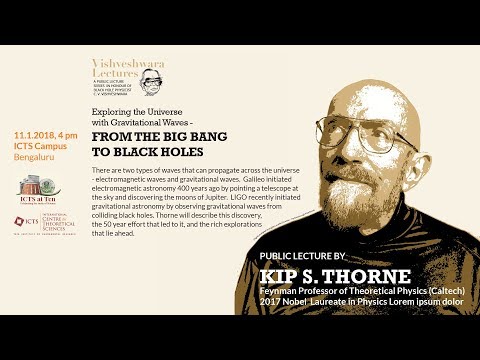Description:
Embark on a captivating journey through the cosmos in this comprehensive lecture by Nobel Laureate Kip S. Thorne. Delve into the groundbreaking field of gravitational wave astronomy, exploring its 50-year development and the recent LIGO discovery that revolutionized our understanding of the universe. Learn about the fundamental differences between electromagnetic and gravitational waves, the challenges in detecting these elusive ripples in spacetime, and the fascinating history of the scientists who made it possible. Discover the implications of gravitational wave detection for studying black holes, neutron stars, and even the birth of the universe itself. Gain insights into future gravitational wave observatories, including space-based missions like LISA, and their potential to unlock new cosmic mysteries. From Einstein's predictions to cutting-edge simulations of colliding black holes, this lecture offers a comprehensive overview of how gravitational waves are transforming our exploration of the universe.
Read more

Exploring the Universe with Gravitational Waves - From the Big Bang to Black Holes
Add to list
#Science
#Astronomy
#Cosmology
#Gravitational Waves
#Astrophysics
#Black Holes
#Physics
#Electromagnetism
#Electromagnetic Waves